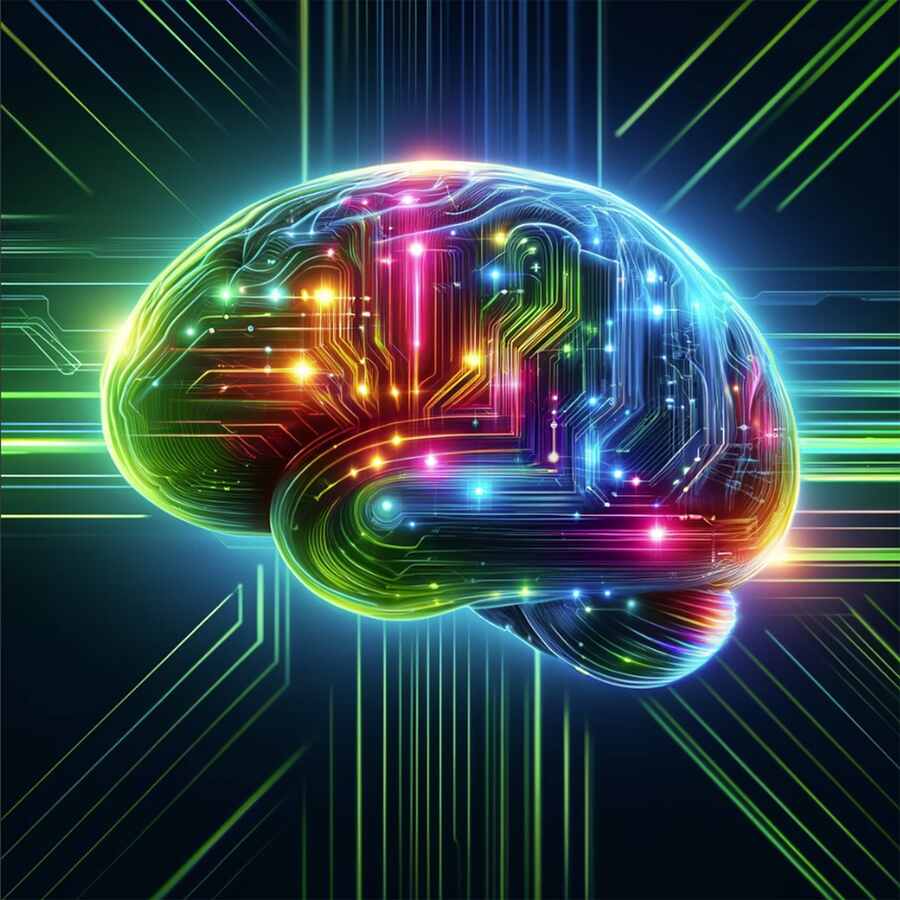The Impact of AI on Everyday Life
Imagine your alarm clock knows exactly when you need to wake up because it’s already checked the traffic on your route. Or your smartphone starts playing your favorite music before you even ask. That’s not magic—it’s artificial intelligence, better known as AI.
But what exactly is AI? Simply put, it’s technology that makes machines smarter. AI learns from data, thinks along with you, and can even make predictions. It’s like giving your devices an invisible assistant that knows you better than you’d expect. The result? A world where technology doesn’t just respond but actively collaborates with you. Sounds like science fiction, right? But it’s already part of our reality.

Let’s start with a place where we all feel at home: our house. AI has completely transformed our idea of a “smart home.” Think of devices like smart speakers, thermostats, and vacuum cleaners. Take a smart speaker or Alexa, for example. You simply say, “Turn on the lights” or “Play my favorite playlist,” and it happens. AI even learns your preferences. Do you often ask about the weather at 7 a.m.? Soon, your assistant will provide that information without you even needing to ask.
Smart thermostats ensure your home is always at the perfect temperature without you having to think about it. They learn from your habits and adjust automatically. Want a bit more comfort? AI-powered vacuum cleaners clean your floor while you sit on the couch with a cup of coffee. It may sound like a luxury, but for many people, these devices quickly become indispensable.
But AI is becoming indispensable not only in our homes. AI is playing an increasingly important role in the medical field, and we are noticing it more and more. Take, for example, apps that help you with exercise or eating healthier. These tools analyze your behavior and provide personalized tips. Do you have a smartwatch? Then you already know how AI can track your heart rate, sleep patterns, and even stress levels.
AI is also making a huge difference in hospitals. For instance, with an MRI scan, AI can help diagnose more quickly and accurately. Where doctors used to need days to analyze images, AI does it in just a few seconds. And it goes beyond that. AI helps doctors come up with treatments that are specifically tailored to a patient. This is called personalized care. It feels a bit like having a doctor who knows you inside and out.
AI is also making our lives easier while we’re on the go. Just think of navigation apps like Google Maps. They not only show you how to get somewhere, but they also account for real-time traffic, roadworks, and even the weather. This way, you reach your destination faster.
AI is even present in the supermarket. Have you ever used a self-checkout? That system is smarter than you think. AI checks whether you’re scanning the correct product and calculates the price in a flash. Shopping online? AI often knows exactly what you need. That’s why you always see recommendations like, “Other customers also bought…” That’s AI at work, learning your preferences.
AI sounds fantastic, but there are, of course, challenges. Take privacy, for example. How much information are we willing to share with smart devices? The more they know about us, the better they can assist us, but there are limits. No one wants to feel constantly watched. There’s also the fear that AI will take over jobs. In factories, offices, and even in the creative sector, such as writing texts or creating art, we’re seeing AI take on more tasks. That can be scary, but it also offers opportunities. AI can actually help us save time and focus on what really matters, such as spending more quality time with family and friends.
AI is still in its early stages, and the possibilities are endless: cars that drive themselves, robots working in healthcare, or AI helping to solve global problems like climate change. But no matter how far we go, one thing is clear: AI is making our lives easier, smarter, and more personalized.
AI, or artificial intelligence, is transforming our daily lives in countless ways. It makes technology smarter, learns from data, and acts as an invisible assistant that understands you better over time. From smart devices in the home, such as speakers and thermostats, to health apps that analyze your behavior and personalize medical care: AI is everywhere. It also plays a role on the go, in navigation apps and self-checkouts. However, AI also brings challenges, such as privacy issues and concerns about job loss. While AI is still in its infancy, it’s clear that this technology is making our lives smarter, easier, and more personalized.

